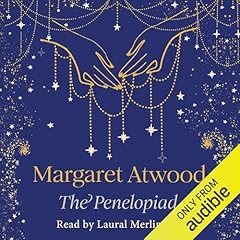
The Bible
A Biography: Books That Changed the World
No se pudo agregar al carrito
Add to Cart failed.
Error al Agregar a Lista de Deseos.
Error al eliminar de la lista de deseos.
Error al añadir a tu biblioteca
Error al seguir el podcast
Error al dejar de seguir el podcast
 Exclusivo para miembros Prime: ¿Nuevo en Audible? Obtén 2 audiolibros gratis con tu prueba.
Exclusivo para miembros Prime: ¿Nuevo en Audible? Obtén 2 audiolibros gratis con tu prueba.Compra ahora por $17.33
-
Narrado por:
-
Josephine Bailey
-
De:
-
Karen Armstrong
In this seminal account, acclaimed historian Karen Armstrong discusses the conception, gestation, and life of history's most powerful book. Armstrong analyzes the social and political situation in which oral history turned into written scripture, how this all-pervasive scripture was collected into one work, and how it became accepted as Christianity's sacred text. She explores how scripture came to be read for information and how, in the 19th century, historical criticism of the Bible caused greater fear than Darwinism.
The Bible: A Biography is a brilliant, captivating book, crucial in an age of declining faith and rising fundamentalism.
Listen to more Books That Changed the World.©2007 Karen Armstrong (P)2007 Tantor Media Inc.Los oyentes también disfrutaron:




















Reseñas de la Crítica
"Groundbreaking....Armstrong shows a depth of insight and transparent understanding of complex theological issues....[She is] simply one of the best writers ever on religion." ( Library Journal)
Las personas que vieron esto también vieron:


















Enlightening
Se ha producido un error. Vuelve a intentarlo dentro de unos minutos.
Any additional comments?
Having grown up in a secular household which merely went through the motions of Christian holidays, I have only exposed myself to the Bible in small ways over the years, reading passages here and there and treating it like any other sacred text - a book that has more significance for other people than myself.I assumed that the Bible had a rich and complex history, but I was not prepared for what I read in this book, and I emerged from it with a new perspective, and perhaps most importantly, a new found compassion and respect for Christianity.
Modern Christianity's focus on the literal interpretation of the Bible as a historical, factual document has always been one of my main reasons for avoiding that faith and its most ardent followers.
I did not know that the literal interpretation was a relatively recent phenomenon, and read with great interest the passages about mystical and allegorical traditions and how they changed over time. I have found inspiration in Bible stories - as allegories - over the years, and was pleased to read that some still consider the text useful to that end.
Expanded my perspective and compassion
Se ha producido un error. Vuelve a intentarlo dentro de unos minutos.
I would only hope that more people would not only read these chapters, but also take time to contemplate and promulgate the message
A MUST read
Se ha producido un error. Vuelve a intentarlo dentro de unos minutos.
fantastic dissection of the ancient realms
Se ha producido un error. Vuelve a intentarlo dentro de unos minutos.
Well researched, well narrated
Se ha producido un error. Vuelve a intentarlo dentro de unos minutos.


